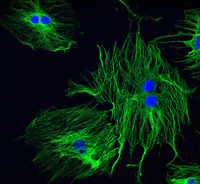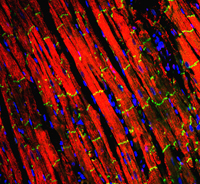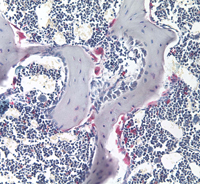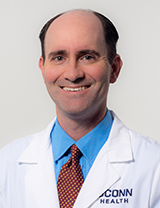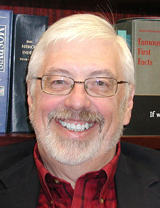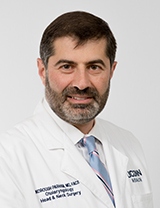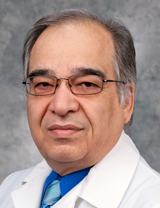Surgical Research
The ongoing research programs in the Division of Surgical Research are diverse and involve the study of a number of diseases and biological processes including ischemic heart disease, glaucoma, diabetes, aging of the bladder and skeletal system, cancer, otoslcerosis, and inflammation and wound healing. In vitro cell studies, mouse models for human disease, tissue engineering with the development of novel biosensors and biomaterials, molecular biology techniques, and human gene mapping are some of the many experimental approaches applied to these health problems.
These are the specific projects identified by initials of the principal investigators listed below:
- Tissue reactions in inflammation and wound healing in particular the roles of cytokines and chemokines networks (DK).
- Bladder cancer and the role of inflammatory cytokines in the tumor microenvironment (JT).
- Biomarkers for disease progression and response to treatment in high grade bladder cancer for the development of novel therapeutics (JT).
- Mechanisms that govern the pathology of ischemic heart disease and the processes of angiogenesis and arteriogenesis in cellular and animal models of heart disease (NM).
- Engineered stem cell therapy for cardiac and wound repair (NM).
- Epigenetic modification in cardiovascular and peripheral artery diseases (NM).
- Breast cancer and the human biofield (GG).
- Development of a biomaterial to sequentially deliver growth factors to aging bone (GG).
- Human gene mapping, cloning, mutation screening, population studies, next-generation exome and DNA sequencing as well as in vivo and in vitro analyses of biological pathways involved in the etiology of glaucoma (MS).
- Molecular tissue engineering and radio frequency telemetry to enhance the function and lifespan of implantable materials and devices including glucose sensors and insulin infusion sets in diabetes (UK).
- Development of biosensors to detect DNA damage and biomarker proteins that predict tissue-specific carcinogenicity (DC).
- Clinical and translational otology research (KP), otosclerosis (KP and GG) and prospective clinical investigation, utilizing narrow-band imaging in early detection of head and neck mucosal cancer (KP).
